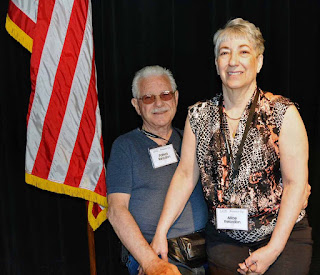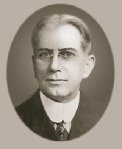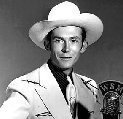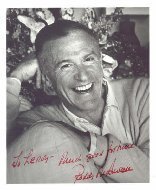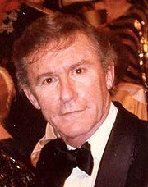During the day, you wouldn’t be able to make out much more than the continents of Earth from all the way up in space. (Contrary to popular opinion, the Great Wall of China is not visible from so far away, even by day.)
Looking down on the earth at night from space shows us a whole new world. About 80% of the world’s population lives in a place lit up by artificial light at night, according to National Geographic. And nowhere do those lights shine brighter than in Las Vegas.
A city that loves its neon signs and bright marquees, Las Vegas offers an around-the-clock dose of sensory overload. Even New York City, “the city that never sleeps,” and Paris, “the city of lights” can’t match the over-the-top light show of Las Vegas viewed from outer space.
There's no excuse to skip breakfast anymore! Our On-the-Go Breakfast Pockets are just as good at the breakfast table as they are on-the-run. A buttery, flaky crust and a cheesy hot filling make these an "A+" morning option.
- 3 eggs
- 1 tablespoon water
- 1/4 teaspoon salt
- 1/8 teaspoon black pepper
- 1 tablespoon butter
- 1 (8-ounce) can crescent rolls
- 4 thin slices deli ham
- 3/4 cup shredded cheddar cheese
- Preheat oven to 375º. In a medium bowl, whisk eggs, water, salt, and pepper.
- In a large skillet over medium heat, melt butter. Add egg mixture and cook 1 to 2 minutes, or until set, stirring occasionally.
- Separate crescent rolls into 4 rectangles, and pinch perforations together. Top each rectangle with a slice of ham, then spoon egg evenly on top half of rectangle; sprinkle with cheese. Fold dough over filling, pressing edges to seal.
- Place on baking sheet and bake 10 to 12 minutes, or until golden brown. Serve immediately.
****Make these ahead of time for busy mornings! All you have to do is wrap them up and pop them in the freezer. When you're ready for one, just take it out and heat!
And births this date include....
1904 – Jerry Colonna, American comedian and entertainer (d. 1986)
1923 – Hank Williams, American musician (d. 1953)
1928 – Roddy McDowall, English actor (d. 1998)
1931 – Anne Bancroft, American actress (d. 2005)
Constitution Day and Citizenship Day on September 17th commemorates the adoption of the Constitution of the United States and those who have become United States citizens. On this day, members of the U.S. Constitutional Convention signed the Constitution in 1787.
Constitutional Convention
While many contributed to crafting the document known today as the U.S. Constitution, James Madison wrote the draft forming the basis for the Constitution. Those who participated in its development gathered in Independence Hall in Philadelphia that sultry summer of 1787. George Washington presided over the Convention. But many “Founding Fathers” attended to other diplomatic duties, unable to participate. Thomas Jefferson, the author of the Declaration of Independence, served overseas on behalf of his country. John Adams also served abroad. However, Patrick Henry refused to attend due to principle and preferring the Articles of Confederation. Others eventually swayed Henry when convention leaders added a Bill of Rights.
The convention lasted from May 25 to September 17, 1787. During that time, the 55 delegates debated the duties of the government, checks, and balances, and the rights and freedoms of the people. They divided the government into three branches: the legislative branch to make the laws; the executive to execute the laws, and the judicial to interpret the laws.
The delegates suffered through rough weather, heat, and illness. Despite the conditions, the formed a Bill of Rights enumerating the rights and freedoms of the people.
Benjamin Franklin, Alexander Hamilton, James Madison and George Washington all signed the Constitution.
On December 7, 1787, Delaware became the first state to ratify the Constitution. So the process began, obtaining each state’s approval. Rhode Island didn’t send any delegates to the Constitutional Convention. Their headstrong character did not appreciate a powerful government and held tight to their independence as long as they could. As a result, they were the last state to ratify the Constitution on May 29, 1790.
Citizenship
The 14th Amendment of the U.S. Constitution defines citizenship as “All persons born or naturalized in the United States, and subject to the jurisdiction thereof, are citizens of the United States and of the State wherein they reside.” On July 28, 1868, Secretary of State William Seward proclaimed the amendment ratified.
While the 14th Amendment was the first step in a long line of amendments defining citizens and their rights, it took decades to enforce some of those rights.
For example, one of a citizen’s most valued powers is the power to vote. The 15th and 19th Amendments define those rights for blacks and women. However, it wasn’t until 1924 that all Native Americans were granted citizenship. Through the Indian Citizenship Act, many Native Americans were allowed to vote for the first time. Still, this legislation did not stop some states from preventing some from voting.
CONSTITUTION DAY HISTORY
This holiday dates all the way back to 1911 when schools in Iowa first recognized Constitution Day. Then in 1917, the society known as the Sons of the American Revolution formed a committee to promote Constitution Day. Members of that committee included Calvin Coolidge, John D. Rockefeller, and General John Pershing.
In 1940, President Franklin D. Roosevelt declared “I am an American Day,” and Congress designated the third Sunday in May to celebrate it. By 1949, the governors of all 48 states had issued Constitution Day proclamations. On February 29, 1952, Congress changed the name from “I am an American Day” to “Citizenship Day” and moved its observation to September 17. In 2004, the day was renamed Constitution Day and Citizenship Day.





